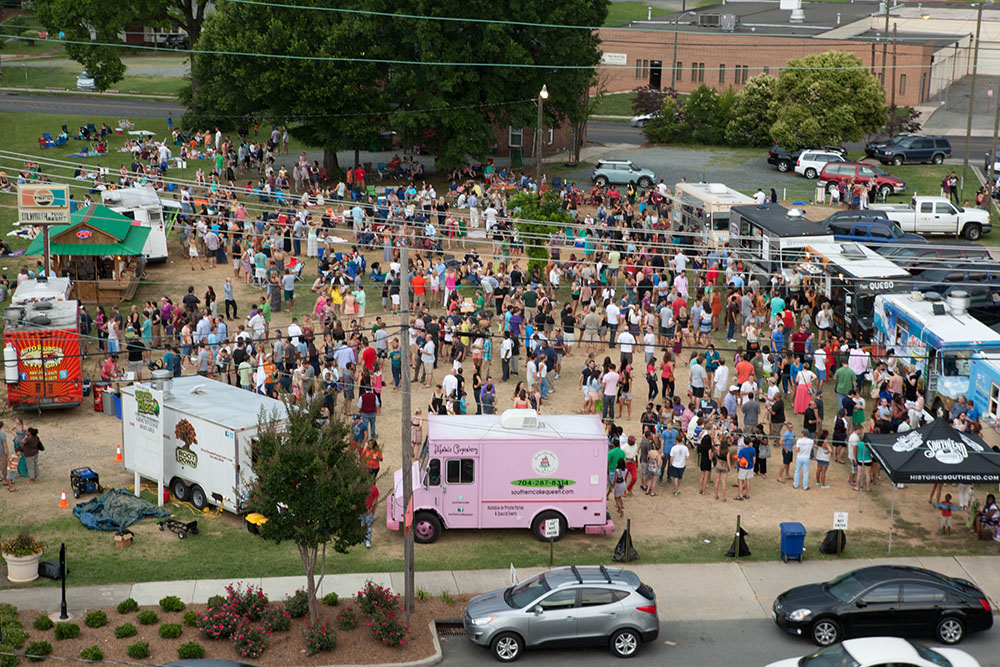CHARLOTTE, NC – On any other day of the week, it’s a dusty cutout of land in South End that accommodates on-the-clock lunchgoers looking for a quick place to park and grab a meal. Price’s Chicken Coop, Phat Burrito and Common Market are in close walking proximity. But at the end of each work week, the parking lot comes alive with a vibrant communal event dubbed Food Truck Friday.
Since its inception in February 2011, Food Truck Friday has evolved from an opportunity to try some of Charlotte’s best food-truck offerings to a destination for friends, family and community, not unlike the green spaces of Central Park in New York City or Dolores Park in San Francisco. Except that it’s in a sparse grass lot in Charlotte.
On this particular summer evening, 14 food trucks have assembled in a jagged horseshoe. Generators hum along, but not loud enough to drown out the throngs of people — friends, couples, neighbors, multi-generational families and first dates — who have come to shrug off the worries of the week and enjoy a night out. What used to be contained inside the curve of four or five food trucks now spills onto the sidewalk, where people create makeshift picnic areas with lawn chairs and blankets. The food coming out of the trucks is some of the most creative Charlotte has to offer, and lines are long. Over the course of the evening, like most Fridays, anywhere between 1,800 to 2,500 people will show up.
As with any business, food trucks are subject to city and county regulations, including code enforcement and zoning laws. But a pervasive feeling among food truck operators is that the city and county do not understand them or the food-truck business model and consequently enforce regulations that hurt their profit margins.
In January, the Charlotte-Mecklenburg Planning Commission rattled the food-truck world and its loyal fans with talks of modifying existing regulations. Some changes would ease current restrictions, such as decreasing the distance food trucks must keep from residential areas from 400 feet to 100 feet. But others, including banning trucks from residential neighborhoods altogether and closing trucks before 10 p.m., are totally unreasonable, truck owners argue.
Any changes were supposed to be made this month, but Katrina Young, the Charlotte-Mecklenburg planning manager, wrote in an email to Creative Loafing that the meeting would be postponed until November as the committee discusses other mobile-food operations, such as mobile farmers markets and other mobile retail uses.
The city and county implemented an ordinance governing mobile food vendors in 2008, when a distinctly different fleet roamed the streets: loncheros, or taco trucks. Occupying working-class immigrant neighborhoods, they were the city’s first mobile food vendors.
Loncheros would typically set up for long shifts outside of neighborhoods to feed hungry workers as they returned home from a second or third shift. The loncheros’ operating hours were long, usually 5 a.m. to midnight.
Find the entire article at clclt.com <here>




